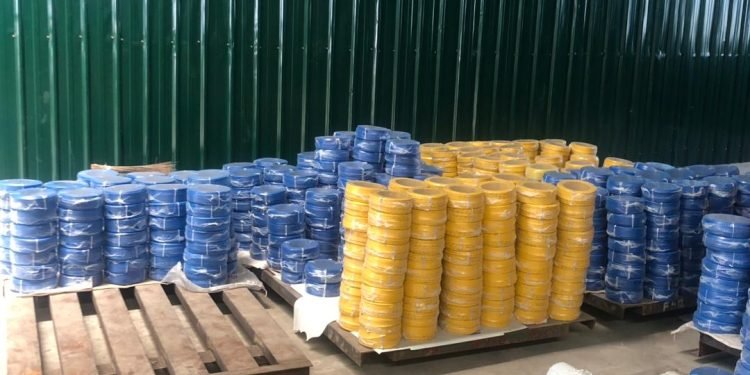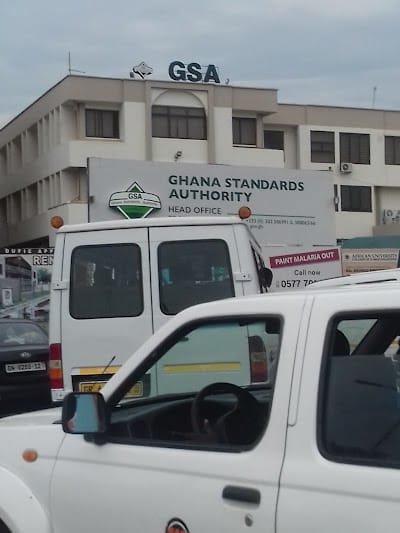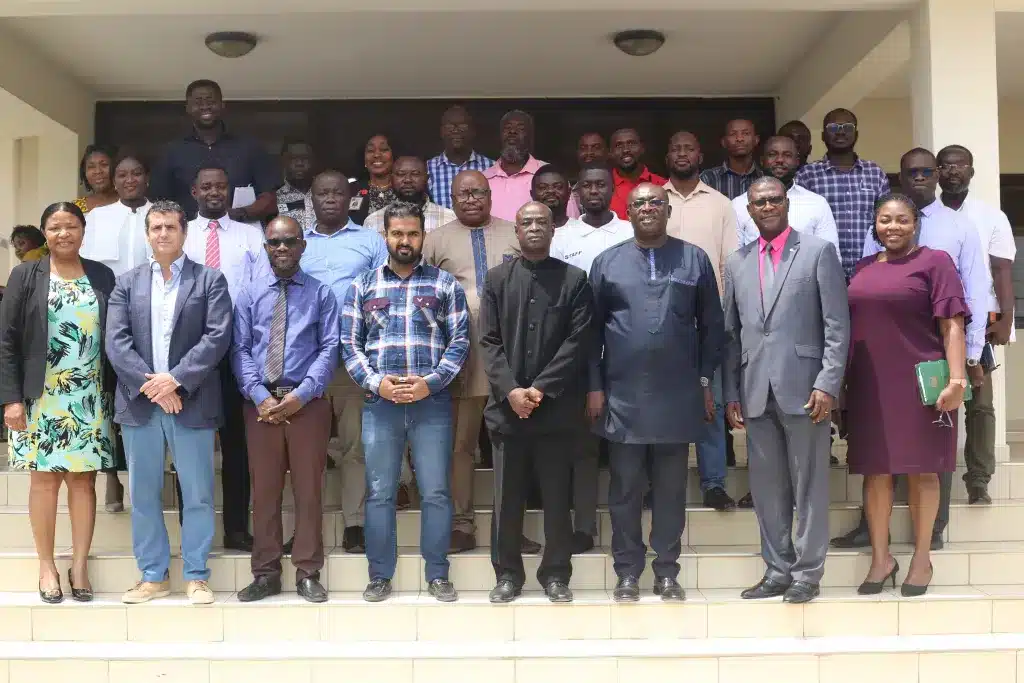Acting Director of the Certification Directorate at the Ghana Standards Authority (GSA), Joyce Okoreee, announced plans for the introduction of online standards purchasing.
Speaking at the UK-Ghana Chamber of Commerce’s webinar on “The Role of the Ghana Standards Authority in Promoting Local and International Trade,” Madam Okoree stated that the initiative is nearly 90% complete.
“We acknowledge that it (the inability to purchase standards online) is an issue and it’s being addressed. For now, you can pay via mobile money and bank transfers and receive your standards with all the security features.
“But very soon, you can make payment via VISA card or Mastercard. We will get there definitely this year.”
She further mentioned that digitizing the purchase of standards is essential to minimize human involvement and ensure a smooth process. This includes timely completion of services and payments, as well as prompt delivery of expected outcomes to the client.
What is the GSA?
The Ghana Standards Authority (GSA) serves as the National Statutory Body overseeing the National Quality Infrastructure (NQI). The NQI is built upon three primary pillars: Standardization, Metrology, and Conformity Assessment (Testing, Inspection, and Certification).
Enacted in 2022, the GSA Act (ACT 1078) founded the Ghana Standards Authority with the responsibility to establish, publish, and uphold standards. Its mandate includes ensuring the quality of goods and services for local consumption, export, or importation.
How does the GSA promote local and international trade?
Quality infrastructure plays a pivotal role in trade, innovation, and competitiveness, enabling increased market access, expanded exports, product diversification, and enhanced investment prospects.
Through stringent adherence to standards, the Ghana Standards Authority (GSA) ensures that Ghanaian products meet rigorous quality and safety standards.
This not only elevates the reputation of Ghanaian goods but also fosters trust among consumers and importers. Moreover, it enables exporters to showcase their dedication to delivering top-tier products, thereby bolstering their export capabilities.
Challenges in complying with GSA Standards
Basil Yaw Ampofo, Unilever’s Global Product Compliance Manager for Africa, highlights that adherence to standards empowers the industry to compete effectively and boosts product acceptance in international markets. Nonetheless, persistent challenges hinder the industry’s compliance efforts.
“Most of the time, some of the changes that the GSA will require of industry involve significant capital investment in technology and infrastructure, which can impact businesses’ operational costs. More often than not, the cost is transferred to the consumer, so goods become expensive”.
He also noted that it “takes quite a while for the GSA to certify products”.
Mr. Ampofo concluded that challenges have served as opportunities for innovation and process improvement within the industry. He, therefore, entreated the GSA to address these challenges by engaging in broad stakeholder conversations with the industry to explore solutions.
Addressing the issue of delays, Madam Okoree remarked that “we know that sometimes we have delays. This is sometimes due to defective equipment.”
She, however, assured businesses that the GSA will review its processes and explore how it can expedite their processes because “we need the business as well and if the industry is not happy, we need to take steps to meet their needs”.
To address delays, in the meantime, Madam Okoree mentioned that the GSA is currently building the capacity of some regional offices to lessen traffic at its head office. This is in addition to expedited services for certain products, and the existence of competent partner testing laboratories that assist the GSA.
The GSA and SME education
Panelists agreed that the GSA could do more to educate the public on its role, especially how it differs from the Food and Drugs Authority, as well as educating SMEs on its role and encouraging them to comply with Standards.
According to Madam Okoree, the GSA has simplified technical Standards, called pictorial Standards, and handbooks on the implementation of Standards, available at its library, to enhance SME education.
A strong believer that “SMEs are the engine of growth”, Madam Okoree passionately encouraged SMEs to engage the GSA on their Standards needs, and issues to enable the Authority to develop bespoke solutions to spur their growth.
“Our joy would be that we have many SMEs on board our scheme. If you have issues, you should write to the Director General informing him of your concerns. Formalizing the process with a letter ensures that you will get results.
“Take advantage of our library and you can access many standards. GSA is here to build SMEs to grow. Our doors are always open, and we will discuss all issues with you.
Panelists also discussed related topics including the GSA Mark of Conformity, its role in the AfCFTA, the product certification process, and how the GSA ensures that substandard goods do not cause public harm.
Theophilus Tawiah, UKGCC Executive Council Member and Managing Partner, WTS Nobisfields, moderated the webinar.












